Andy Griffiths launches ILF’s 2024 Great Book Swap at Sea Life
Aussie children’s author Andy Griffiths launches the Indigenous Literacy Foundation’s annual Great Book Swap at Sydney Sea Life aquarium – get swapping and win a virtual visit from Andy
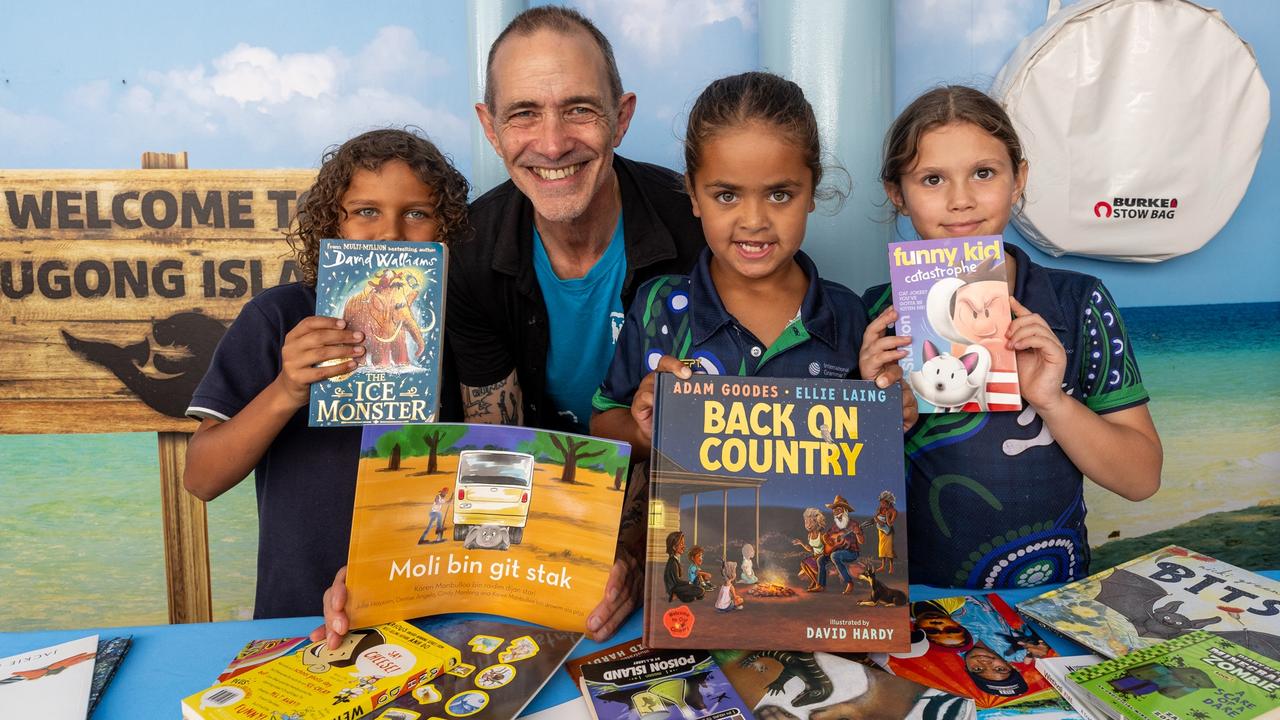
READING LEVEL: GREEN
How does a virtual visit from mega Aussie children’s author Andy Griffiths sound? Even better, the way to get Griffiths zooming into your school is to host a Great Book Swap.
Launching this year’s swap at Sydney’s Sea Life Aquarium, Griffiths, an Indigenous Literacy Foundation (ILF) Lifetime Ambassador*, said that “The Great Book Swap is a really fun way to swap one of your preloved* books for another book that … you might end up loving even more.”
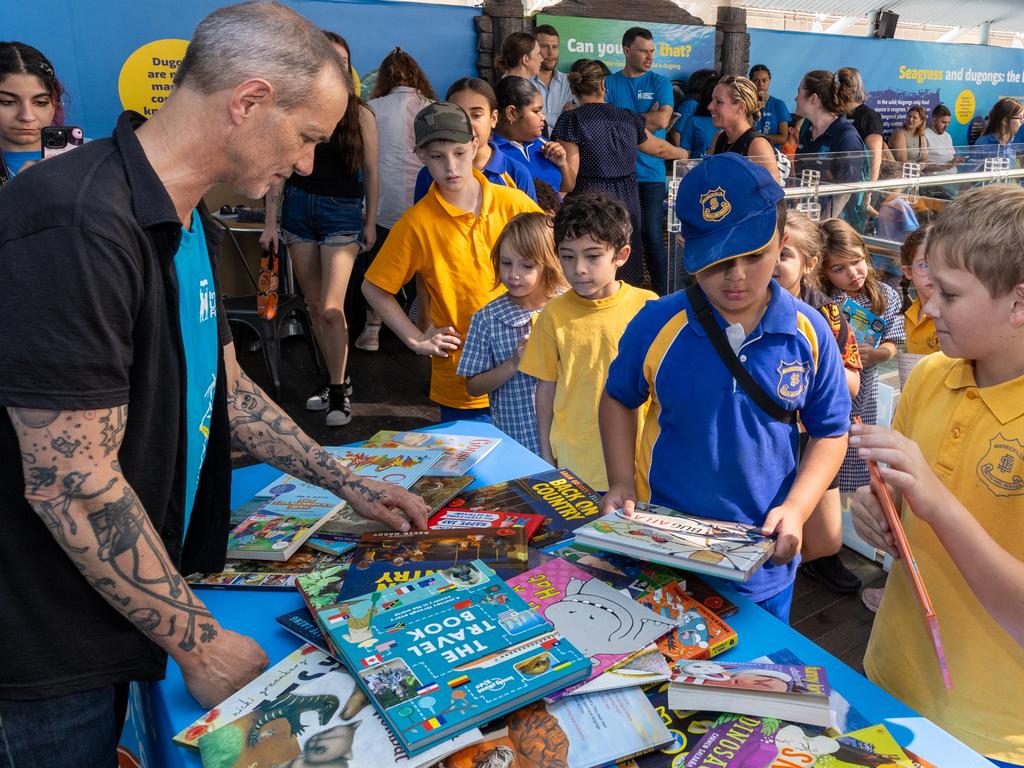
“Even better, for the price of a gold coin, you’ll also be raising funds to ensure that kids in remote Communities have the chance to fall in love with books and reading as well,” he said.
An important annual fundraiser for the ILF, the Great Book Swap also connects kids with each other, according to ILF head of programs Zoe Cassim.
“Seeing people’s faces light up when they start sharing how much they love a book, character or author, and why someone else may like it, is so heartwarming,” she said. “It
becomes a shared experience and that deep connection we so often miss out on.”
All schools that host a Great Book Swap and donate their funds by 1 November win a virtual visit from Griffiths.
WHAT IS THE TIWI NAME FOR “DUGONG”?
First Nations students from five primary schools had a chance to learn about and meet a dugong* when they joined Griffiths to launch the 2024 Great Book Swap on Tuesday.
Merlin Entertainments regional director ANZ Ian Wood said Sydney Sea Life Aquarium was “incredibly proud to support and collaborate* with the Indigenous Literacy Foundation” and its charitable* work delivering books and literacy programs to remote Communities.
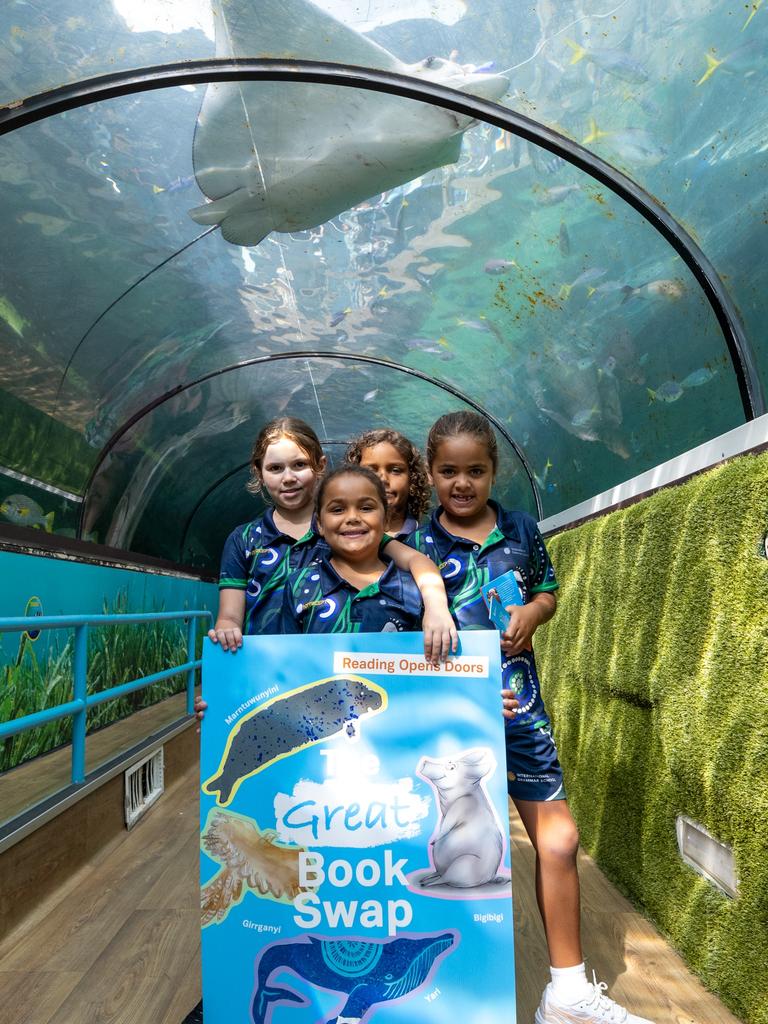
“There is value in being able to read,” Mr Wood said. “Literacy is a foundation skill and helps children navigate* the world around them.
“We are delighted to host the ILF’s Great Book Swap at Sea Life Sydney Aquarium. It’s a fun and interactive way to celebrate reading and shared experiences alongside the highly inspirational and acclaimed* children’s author and ILF Lifetime Ambassador Andy Griffiths.”
The book swap is also a great chance for young non-Indigenous readers to expand their knowledge of First Nations languages – as with the Tiwi word for “dugong”, which is “marntuwunyini” (marn-too-woon-yin-ee).
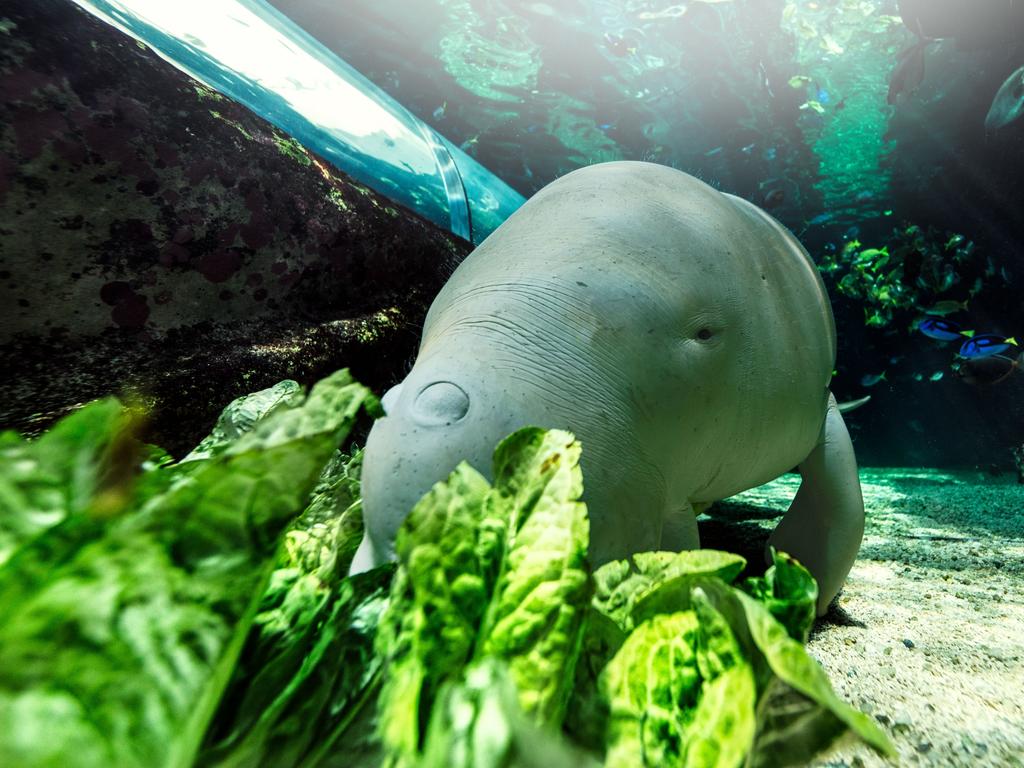
LANGUAGE HOUSES
There are four new animal-inspired Indigenous Language Houses that schools will be allocated when they register for the 2024 Great Book Swap.
Schools will be assigned to a House when they register.
Each animal is featured in a published ILF bilingual book. These stories have been written and illustrated by remote Communities.
The four new Language Houses are designed to engage students in a region of Australia, a First Nations language and an animal from that region.
• Marntuwunyini (“dugong” in Tiwi, NT): from ILF book Tiwi Seasons with Marius, by Tiwi College with Shelley Ware and David Lawrence
• Yari (“humpback whale” in Yawuru, WA): from ILF book Country Tells Us When, by educators Tsheena Cooper, Mary Dunn, Dalisa Pigram-Ross and Sheree Ford.
• Girrganyi (“brown falcon” in Bunuba, WA): from ILF book Winthali: Fire by Joe Ross and Stacey Bush.
• Bigibigi (“pig” in Kriol, NT) from ILF Book Moli det bigibigi/Molly the Pig and the recently released sequel Moli bin git stak/Molly Gets Stuck, both by Karen Manbulloo.
Hosting a swap is a fantastic way to celebrate reading locally, learn more about Indigenous Languages and culture, while raising funds for the Indigenous Literacy Foundation.
This year, the ILF aims to raise $180,000 to gift 18,000 culturally relevant books to remote Indigenous Communities across Australia.
WHICH SCHOOLS WIN A VIRTUAL VISIT FROM ANDY GRIFFITHS?
Schools that host a Great Book Swap and submit their funds by 1 November will automatically win a virtual visit from best-selling author Andy Griffiths.
Those that host a swap and submit their funds by 30 June will also automatically go in the draw to win the Early Bird prize, a book pack of ten ILF titles.
2024 Great Book Swap registrations are open now. Learn more and register at www.greatbookswap.org.au/
WATCH THE VIDEO
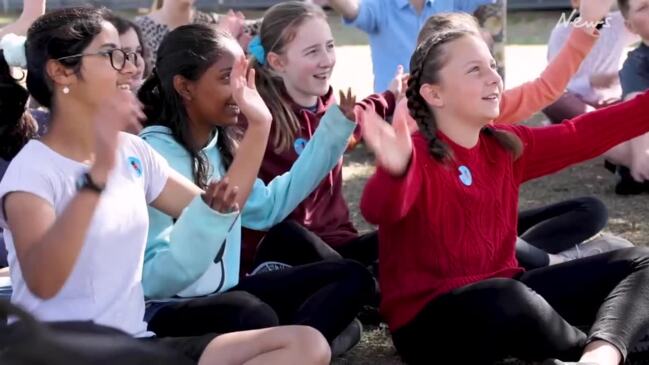
POLL
GLOSSARY
- ambassador: someone who represents, speaks for, or advertises a particular organisation, group of people, activity, or brand
- preloved: previously owned or used, second-hand
- dugong: plant-eating marine mammal, similar to a manatee, with a barrel-shaped body, flipper-like forelimbs, no hind limbs
- collaborate: to work together for a special purpose and/or common goal
- charitable: giving money, food or help free to those who need it because they are poor, sick or vulnerable
- navigate: find the right direction to travel or move through
- acclaimed: publicly known and acknowledged as excellent
EXTRA READING
Bilingual books take centre stage
Song to save Indigenous languages
Jess Mauboy and Mitch Tambo sing the same tune
QUICK QUIZ
- What was best-selling children’s author Andy Griffiths doing at Sea Life Sydney Aquarium?
- First Nations students from five primary schools met which marine mammal at the launch?
- Which animals make up the four Language Houses for this year’s Great Book Swap?
- How much money does the Indigenous Literacy Foundation hope to raise in this year’s swap?
- What is the Tiwi word for “dugong” and how do you write it phonetically?
LISTEN TO THIS STORY
CLASSROOM ACTIVITIES
1. Get your school involved!
What would you do to convince your school to join the Great Book Swap?
Write a convincing letter to your principal and a poster to encourage all of the students to get involved. Is there something else you could do? Write a description! Don’t forget to include information about how the Great Book Swap works.
Time: allow at least 20 minutes to complete this activity
Curriculum Links: English, Personal and Social Capability
2. Extension
Design a logo or special flag for each of the Indigenous Language Houses. You will need to use your research skills to find out more about the books, languages and country of each House to help you create a great design.
Time: allow at least 45 minutes to complete this activity
Curriculum Links: English, Visual Communication Design
VCOP ACTIVITY
To sum it up
After reading the article, use your comprehension skills to summarise in a maximum of three sentences what the article is about.
Think about:
What is the main topic or idea?
What is an important or interesting fact?
Who was involved (people or places)?
Use your VCOP skills to re-read your summary to make sure it is clear, specific and well punctuated.